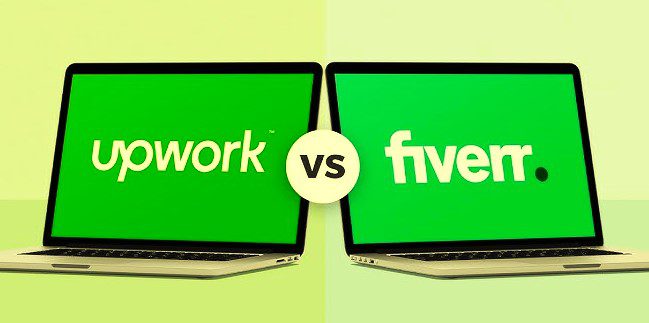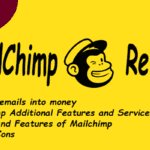1. Medical Credentialing Specialist: An Introduction
As the demand for qualified healthcare professionals continues to rise, the importance of accurate and efficient medical credentialing becomes paramount. Medical credentialing ensures that healthcare providers meet the necessary qualifications, licenses, and certifications to deliver quality care to patients. If you possess strong organizational skills, attention to detail, and a passion for the healthcare industry, freelancing as a medical credentialing specialist can be a lucrative and rewarding career choice. In this guide, we will explore the essential skills and qualifications required to excel in this field, provide guidance on setting up your freelance business, offer strategies for finding clients, and share tips for managing and navigating the credentialing process in different healthcare settings. By the end of this article, you will be equipped with valuable knowledge to earn money online as a successful medical credentialing specialist.

1. Introduction to medical credentialing
1.1 What is medical credentialing?
Medical credentialing is the process of verifying and assessing the qualifications, experience, and competency of healthcare professionals. It involves conducting thorough background checks, reviewing education and training records, verifying licenses and certifications, and confirming professional references.
1.2 Importance of medical credentialing
Medical credentialing is crucial for ensuring patient safety and maintaining high standards of healthcare delivery. By validating the credentials of healthcare professionals, medical credentialing helps healthcare organizations and insurance companies make informed decisions about who they allow to provide medical services. It ensures that only qualified and competent professionals are entrusted with patient care.
1.3 Role and responsibilities of a medical credentialing specialist
As a medical credentialing specialist, your responsibility is to oversee the entire credentialing process. This includes collecting and verifying all relevant information about healthcare professionals, ensuring compliance with legal and regulatory requirements, maintaining accurate and up-to-date records, and communicating effectively with healthcare providers, insurance companies, and regulatory bodies.
2. Essential skills and qualifications for a medical credentialing specialist
2.1 Knowledge of medical terminology and procedures
A strong understanding of medical terminology and procedures is essential for accurately reviewing and validating healthcare professionals’ credentials. Familiarity with industry-specific terminology will enable you to effectively communicate with healthcare providers and understand the nuances of their qualifications.
2.2 Familiarity with legal and regulatory requirements
As a medical credentialing specialist, you need to stay updated with the ever-evolving legal and regulatory landscape in the healthcare industry. This includes knowledge of licensing requirements, accreditation standards, and privacy regulations, such as HIPAA.
2.3 Attention to detail and organizational skills
In the world of medical credentialing, attention to detail is everything. You must meticulously review documents, cross-reference information, and ensure accuracy and completeness. Strong organizational skills are also crucial for managing large volumes of data and maintaining thorough records.
2.4 Communication and interpersonal skills
Effective communication is key to collaborating with healthcare providers, insurance companies, and other stakeholders. As a medical credentialing specialist, you should be able to clearly and professionally convey information, resolve conflicts, and build positive relationships. Strong interpersonal skills will also help you navigate complex situations and work well with diverse personalities.
3. Setting up your freelance business as a medical credentialing specialist
3.1 Identifying your target market and niche
Before launching your freelance business as a medical credentialing specialist, it’s important to identify your target market. This could include healthcare facilities, private practices, or insurance companies. Additionally, consider specializing in specific areas of credentialing, such as physician credentialing or facility credentialing, to differentiate yourself from competitors.
Medical Credentialing Specialists, A Comprehensive Guide to Software Solutions
3.2 Creating a business plan and defining your services
Developing a comprehensive business plan will help guide your freelance journey. Outline your services, pricing structure, and marketing strategies. Determine how you will acquire clients and generate revenue. Emphasize your unique value proposition and highlight how your expertise in medical credentialing can benefit potential clients.
3.3 Establishing your online presence
In today’s digital age, a strong online presence is crucial to attracting customers. Create a professional website that highlights your skills, experience and services. Use social media platforms to engage with potential clients, share industry insights, and build credibility. Utilize search engine optimization techniques to ensure your freelance business appears in relevant online searches.
3.4 Setting up billing and invoicing systems
As a freelancer, it’s important to establish proper billing and invoicing systems to ensure smooth financial transactions. Consider using online invoicing platforms that allow you to easily generate and track invoices. Clearly communicate your payment terms and ensure you have a process in place to follow up on any late or outstanding payments.
4. Finding clients and marketing your services
4.1 Networking with healthcare professionals and organizations
Networking is a powerful tool for finding clients and establishing professional relationships. Attend industry conferences, join relevant associations, and participate in online forums to connect with healthcare professionals and organizations. Engage in meaningful conversations, offer valuable insights, and position yourself as an expert in medical credentialing.
4.2 Utilizing online platforms and job boards
Utilize online platforms and job boards specifically catering to the healthcare industry to find potential clients. Create profiles on freelance marketplaces and platforms that connect healthcare professionals with credentialing services. Regularly check job boards for credentialing-related opportunities, and submit proposals showcasing your expertise and capabilities.
4.3 Building a professional portfolio and website
Build a professional portfolio that highlights your past successes, showcases your expertise, and demonstrates the value you can bring to clients. Include testimonials from satisfied clients and case studies that illustrate the impact of your work. Ensure your website is visually appealing and user-friendly, making it easy for potential clients to navigate and understand your services.
4.4 Implementing effective marketing strategies
Effective marketing strategies can help you stand out in a competitive market. Consider offering free resources, such as downloadable guides or webinars, to attract potential clients and demonstrate your knowledge. Use social media platforms to share relevant content, engage with your audience, and establish yourself as a thought leader. Collaborate with complementary service providers, such as medical billing companies, to expand your reach and generate referrals.
5. Managing and organizing credentialing documents and information
5.1 Developing a document management system
When you’re working as a freelance medical credentialing specialist, keeping track of all the necessary documents and information can feel like herding cats. That’s why it’s essential to develop a document management system that works for you. Find a digital platform or software that allows you to organize and categorize documents, making them easily accessible when needed. Whether it’s cloud storage or a snazzy spreadsheet, find a system that suits your style and keeps you organized.
5.2 Ensuring compliance and data security
As a medical credentialing specialist, you’ll be dealing with sensitive information. It’s crucial to prioritize compliance with privacy regulations and prioritize data security. Make sure you’re using encrypted platforms for document storage and communication, and only share information with authorized individuals. Additionally, staying up-to-date with industry regulations and changes will help you ensure compliance and maintain data security.
5.3 Streamlining the credentialing process
Let’s face it, the credentialing process can be a bit of a bureaucratic nightmare. However, as a freelancer, your time is money, so it’s essential to find ways to streamline the process. Look for opportunities to automate tasks, utilize templates for frequently used documents, and establish clear communication channels with the healthcare facilities you work with. By finding efficiencies in your workflow, you’ll be able to tackle more clients and earn more money.
5.4 Maintaining accurate and up-to-date records
Accuracy is key in the world of medical credentialing. It’s your responsibility to maintain precise and up-to-date records. Double-checking information, verifying credentials, and keeping a record of all communication is essential. Not only will this ensure that your clients’ credentials are in order, but it will also protect you from potential legal issues. So, be diligent in your record-keeping and accuracy, and you’ll establish a reputation as a reliable professional.
6. Navigating the credentialing process for different healthcare settings
6.1 Understanding the credentialing requirements for hospitals
Hospitals are like the granddaddies of healthcare settings when it comes to credentialing. Navigating their requirements can feel like deciphering ancient hieroglyphics. Familiarize yourself with their specific processes, paperwork, and timelines. Be prepared to work closely with medical staff services departments and be patient because, let’s be honest, bureaucracy moves at its own pace.
6.2 Credentialing for private practices and clinics
Private practices and clinics tend to have more streamlined credentialing processes compared to hospitals. They often require similar documentation but with fewer hoops to jump through. However, don’t let simplicity fool you; attention to detail is still essential. Keep organized records, meet deadlines, and communicate effectively with the individuals responsible for credentialing. This way, you’ll build a reputation as the go-to freelance credentialing specialist in the private practice world.
6.3 Navigating credentialing for insurance networks
Insurance networks have their own unique credentialing requirements. They want to ensure that the healthcare professionals in their network meet certain standards. You’ll need to familiarize yourself with the specific criteria and guidelines of each insurance network you work with. Be prepared to submit thorough documentation and have the patience of a saint as you navigate through their processes. Remember, Rome wasn’t built in a day, and neither is a properly credentialed network.
6.4 Dealing with state and federal credentialing processes
State and federal credentialing processes can feel like a maze of red tape. Each state and federal agency has its own rules and regulations, making it important to stay up-to-date and well-informed. Take the time to research and understand the requirements of each jurisdiction you work in. This way, you’ll be able to complete the necessary paperwork and ensure your clients are compliant with all state and federal regulations.
7. Maximizing income opportunities and expanding your freelance business
So, you’ve mastered the art of medical credentialing as a freelancer. What’s next? It’s time to maximize your income opportunities and expand your business. First and foremost, always deliver exceptional service to your clients. Word of mouth remains a powerful tool in the healthcare industry. Ask for testimonials and referrals from satisfied clients to help attract new business.
Additionally, consider offering value-added services to your clients. This could include assistance with other aspects of healthcare administration, such as provider enrollment or insurance billing. By broadening your skillset and offering more comprehensive services, you’ll become even more indispensable to your clients.
Lastly, don’t shy away from marketing yourself and your services. Social media platforms, professional networks, and healthcare industry conferences are all great avenues to showcase your expertise and connect with potential clients.
Remember, being a freelance medical credentialing specialist is no small feat. But with organizational prowess, a willingness to navigate complex processes, and a proactive approach to growing your business, you’ll be well on your way to earning money online and making your mark in the world of medical credentialing.In conclusion, freelancing as a medical credentialing specialist offers a unique opportunity to contribute to the healthcare industry while enjoying the flexibility and independence of remote work. By honing your skills, staying updated with regulations, effectively marketing your services, and delivering exceptional results, you can build a thriving freelance business in this specialized field. Remember to continuously adapt to the evolving healthcare landscape and seek professional development opportunities to stay ahead. With dedication and perseverance, you can establish yourself as a trusted and sought-after medical credentialing specialist, enjoying a fulfilling career while earning income online.
FAQ
1. Is previous experience in the healthcare industry necessary to become a medical credentialing specialist?
No, previous experience in the healthcare industry is not required to become a medical credentialing specialist. However, having a basic understanding of medical terminology and procedures can be beneficial. It is essential to acquire the necessary skills and knowledge through training programs or certifications specific to medical credentialing.
2. How can I find clients as a freelance medical credentialing specialist?
The role of Certified medical credentialing specialist certification in advancing the freelance career of medical coders.
There are several ways to find clients as a freelance medical credentialing specialist. Networking with healthcare professionals, joining industry associations, and attending healthcare conferences can help you connect with potential clients. In addition, online platforms, job boards, and social media can be valuable resources for finding freelance opportunities. Building a professional portfolio and having a strong online presence can also attract clients who are seeking your services.
3. What are some challenges I may face as a freelance medical credentialing specialist?
Some challenges you may face as a freelance medical credentialing specialist include keeping up with changing regulations and requirements, managing a large volume of documents and information, and effectively communicating with clients and healthcare organizations. Additionally, competition within the industry can be intense, so it is important to continuously update your skills and stay informed about industry trends to remain competitive.
4. Is it possible to expand my freelance medical credentialing business beyond just individual clients?
Absolutely! As a freelance medical credentialing specialist, you can explore various avenues to expand your business beyond individual clients. You can consider partnering with healthcare staffing agencies, consulting firms, or other organizations that require credentialing services. Additionally, offering specialized services such as training programs or consulting for healthcare organizations can help you diversify and expand your freelance business.






























